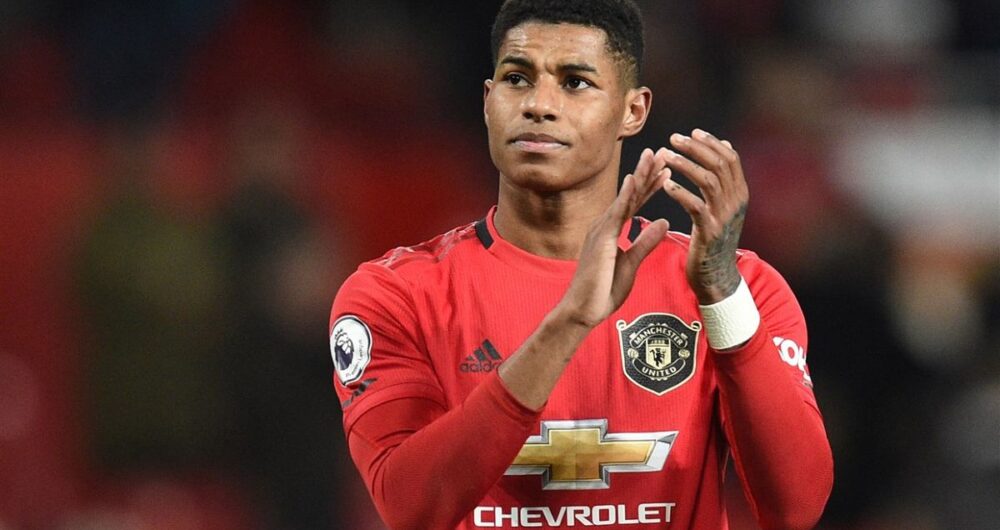According to BBC News, Marcus Rashford, the England football player, has formed a taskforce with some of the UK’s biggest food brands to try to help reduce child food poverty.
The group of supermarkets, businesses and charities, including Aldi, Asda, Co-op, Deliveroo, Food Foundation, Iceland, Kellogg’s, Lidl, Sainsbury’s, Tesco and Waitrose, have joined together to form a taskforce to combat the issue of child food poverty. They have backed proposals from the National Food Strategy which is an independent review of UK food policy.
The 22-year-old Manchester United player successfully campaigned to extend free school meals to the summer holidays and has spoken about his own experiences of using food voucher schemes when he was a child.
He has written to many MPs, telling them the sort of help he feels that many families need
Mr Rashford said he was “confident” the businesses and charities in question could help change lives “for the better”.
When he spoke to BBC Breakfast, he said that extending free school meals over the summer was a “short-term solution” but it “wasn’t going to work in the long run” with fixing child hunger and poverty.
Mr Rashford added, “We wanted to do it the best way we could, introduce the best people into our group, and see if using them [we] can push it even more.”
The group of supermarkets, businesses and charities are calling for three policy recommendations by the National Food Strategy to be funded by the government as soon as possible. These are:
- Expanding free school meals to every child from a household on Universal Credit or an equivalent to this, thus reaching 1.5m children aged seven to 16 in addition to the people already receiving help
- Expanding on food and activities during school holidays to support all these children, reaching an additional 1.1m children
- Increasing the value of the Healthy Start vouchers from £3.10 to £4.25 per week and expanding it to all those on Universal Credit or equivalent, which will effect an additional 290,000 children under the age of four and pregnant women
The taskforce says that by implementing these three recommendations, it would mark a “unifying step to identifying a long-term solution to child poverty in the UK”.
Nick Gibb, the schools minister, said that he would be delighted to meet Mr Rashford as he was “right to draw the nation’s attention” to the matter.
Mr Gibb also told BBC Breakfast that the government shared Mr Rashford’s beliefs and wished to alleviate child food poverty as well.
Henry Dimbleby, who is leading the National Food Strategy review, has said that school meals are a “fantastic way” to get children eating good, nutritional food at school compared to packed lunches which he added that “Only 1% of packed lunches have the nutritional value of a school meal”.
Speaking on BBC Breakfast, he said that nutrition was the basis of equal opportunity as “you can’t level up if you are not getting enough nutrition into your most vulnerable children”.
He also said that the status of school cooks needed to be raised, saying they were “as important as any teacher”.
Members of the taskforce have also pledged to spend the next six weeks using their social media platforms to share stories of those affected by child food insecurity in the UK.




